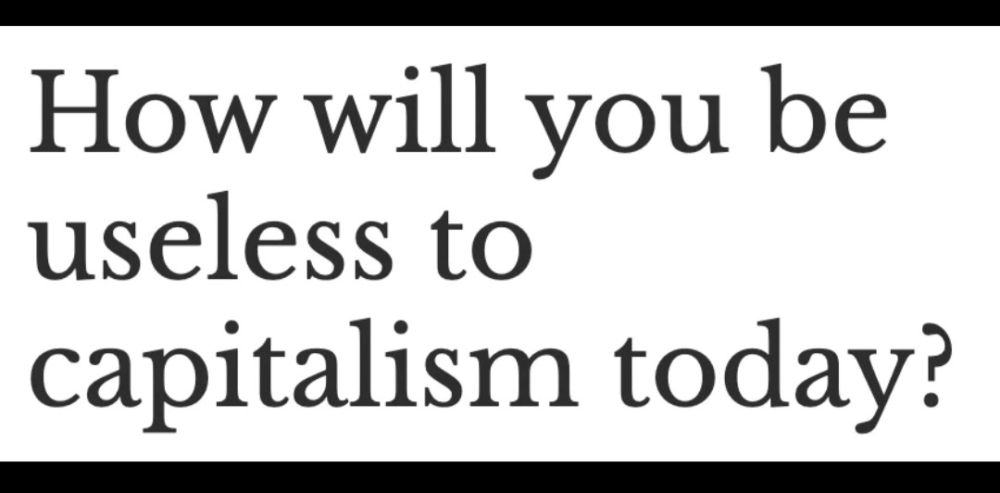Too Much Information: Why Personal Knowledge Management Is Hard: analogoffice.net
@annahavron Love the post especially the comment in this line:
> you make a lot of notes for yourself (btw IRL most people do not do this, just sayin’)
:-D
@annahavron Thank you. Systems for task management generally work for me (for a time), but nothing has ever worked for organizing the mass of notes that my work generates. But I discovered that the chaos is easily searchable, especially with OCR-enabled apps such as Apple Notes. Dump it in, search later.
I so appreciate Anna’s thoughtful prompts. Her piece is great but today I’m “yes and-ing” a tiny aside in it:
you make a lot of notes for yourself (btw IRL most people do not do this, just sayin’)
This friendly jibe got me thinking — I’ve seen a related sentiment from many places that note taking is not particularly productive for most people, and that knowledge management can be somewhat a fool’s mission. To each their own, but personally, I have found my mind garden to be a huge spur in my thinking. I wanted to dig into why I find my mind garden worth the time and effort when others do not.
I realized that, for me, the act of note-taking is a form of deeper engagement with the material. The notes themselves may not be valuable, but the act of taking them is critical. It brings my consideration of the ideas to another level, prioritizing what’s important and noting what sparks my thinking. It keeps me actively processing rather than falling into skimming. I also feel, as Burkeman recently put into words, that the details of any individual work are not what the important takeaway is for me, but rather how that work fits into or shifts my big picture perspective — or as he puts it, shapes my sensibility.
Often I’m set off by a stray remark like this one, a tangent to the original work’s point, and for me that’s totally fine: I’m reading to think and make connections, and I’ll take them wherever they arise. I have no set expectation of what I’ll take away from most of what I read or watch. I’m not an academic, focused on a particular topic or theme; I’m not coalescing information towards any particular end, but following my curiosity. That’s not to say I don’t want to be intentional in what I spend my time thinking about, but that my reading and thinking is oriented around some big questions that are important to me, not intended to inform a professional product for others.
I totally understand why others would think it’s ridiculous or time-wasteful, but I find I like doing things these days without considering their efficiency or utility. I’ve been driven by these precepts so long, it’s a good practice for me to set them aside occasionally. Like leisure need not be earned, neither must learning be driven by purpose or need. I see this thought pattern emerge in many forms in our society: we argue vacation is important because it makes you a better worker, not because work should not constitute our entire lives; applied science and engineering get more funding than basic science research that’s not immediately monetizable; hobbies are expected to become side hustles. Focusing on the end product to the exclusion of other outcomes (like play) is the same attitude that leads to effective altruism. I think disrupting this cultural fixation we have on productivity from time to time can be a healthy reminder that we are more than our work.
 Baby step subversion.
Baby step subversion.
My website is a place I play; if I’m having fun, it’s served its main purpose. Thinking and writing bring me joy. I’m ok with my learning drifting slowly with the currents of my reading. For those who treat their knowledge management systems more traditionally, being effective and efficient in their note-taking is an essential part of the system; here, a less methodical approach suits my different needs and goals.
@tracydurnell.com I love and agree with every word of this! btw at micro.camp I’ll be talking about the importance of being more than our work. Thank you so much for sharing this. Fantastic post!
@V_ :-D I have tried so many ways not to be buried in my own notes; and it was a long time before it occurred to me that, ummm, most people do not have that problem
@chrisfoley Search is amazing, isn’t it?
@annahavron Your title made me think it was about a different, but related book…
I too bought Hess’ book at Kimberly’s recommendation, but I’m still plowing through the end of Ann M. Blair’s Too Much to Know: Managing Scholarly Information before the Modern Age (Yale University Press, 2010). You might find it interesting, but hopefully not overwhelming.
@tracydurnell.com your description of how you work. I may be settling into a similar sort of approach…